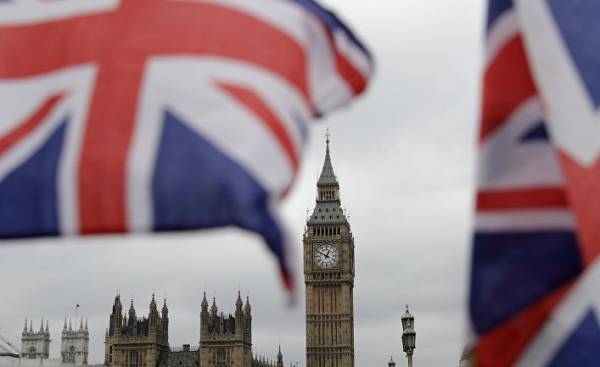
We live in a politically turbulent era. The party, which is barely a year old, recently came to power in France and in the vast Metropolitan area of Tokyo.
The party, which is not yet five years old, is the leader in the rankings of public opinion in Italy. The White house has settled the political neophyte (to the deep dismay of establishment Republicans and Democrats). Where will occur the next political earthquake? Likely — and more necessary — answer: UK.
Even despite the fact that Britain expects the shake-up of Breccia, nobody starts talking about restructuring (and especially replacement) of the existing political parties. Many deny even the thought of such a thing. Former Prime Minister Tony Blair, a Pro-European centrist innovator who won three times at General elections at the head of the labour party in 1990-e years, very much tried in his recent article, to emphasize that not offers to form a new party.
But that’s exactly what you have to do a Blair or people like him. The fact that, while in the British political system really set the daunting barriers to any new party, the chances of its success is now much higher than at any other time in the last 40 years. In the political system, which is still feeling the impact of two large earthquakes (the referendum on Breccia in June 2016, a year later, the humiliating failure of the Conservative party in the election, which she also started), the newcomers obviously have a chance.
The conservatives have plunged into internal strife, which can only try to hide. The labour party also began an internal rebellion. It is now appropriate moment for the emergence of new parties, created following the example of the party of the President of France Emmanuel Makron “Go Republic!” (La République En Marche!). She can win due to the split, chaos and distrust in existing parties. And that now is the time for the photogenic young British or British women, ready to follow in the footsteps of the 39-year-old Rules and to go down in history, smashing the old guard.
Yes, of course, the British electoral system — and this writes Blair gives a huge advantage to existing political parties, as is the majority from the constituency one member shall be elected who received the most votes. Having spent a lot of money and energy, and perhaps even enlisting a significant number of votes in his debut election, the new party may find that its voters scattered around the country too in a thin layer, which allows you to get in Parliament only a few places.
That’s exactly what happened the last time into the fray I decided to get a new centrist party. In the early 1980-ies of the four dissidents from the labour party, alarmed by the left-wing in his party and its anti-European stance, has created the Social democratic party. Taking advantage of the unpopularity of the first economic decision of the Prime Minister Margaret Thatcher, the new social democratic party in Alliance with the small Liberal party, received 25% of votes in the General election of 1983. However, this brought her only 23 parliamentary seats, after which the party went downhill.
These memories today are killing the incentives for political innovation. Those who are in the labour party with deep suspicion refers to leftist economic and foreign policy views popular leader of the labour party Jeremy Corbyn, I think, however, that the most reasonable strategy is to have patience and when you get a chance, to regain control over the party. The same can be said of conservatives who believe that Brakcet leading the country to disaster.
However, the history of the RPS can and should be interpreted differently. In 1982, the party had the support of more than 50% of the electorate, according to opinion polls. Many senior conservatives in private conversations claimed at the time that they expect the resounding victory of the SDP in the next elections.
Then came the Falklands war, which resulted in a great victory for Thatcher. And resounding victory in the election of 1983 was won by the conservatives. This result marked the beginning of a long process of displacement of an unpopular labour party to the political center.
Today no major victory in the labor party or the conservatives is not expected. Moreover, the last election in which the conservatives lost their lead to 20 points literally over night, because the voters, primarily young people, decided to support the labour party, allow us to conclude that British voters are open to new suggestions.
Of these choices, you can make another important conclusion: Europe and Pexit are not the problem that most concerned the British electorate. Labour Corbin advocated the same policy of Brexia that the conservatives may. However, issues such as jobs, hospitals, schools, social security, and their approaches vary dramatically.
This means that to win over the existing parties, a new political movement will have to act primarily for the restoration of the quality of government services, economic recovery and restoring confidence. Strong ties with the European Union will have to present as a means of achieving these goals, not as a goal in itself.
In the coming months may have the opportunity to create such a movement. This will depend, first, on how deeply the Conservative party will be destroyed leadership ambitions and disagreements, and, secondly, how far will the recent rebellion more than 50 senior members of the labour party because of the position of Corbin about Brexia.
Anyone who thinks about these prospects, remember the Falklands, and that any party could be a PSD, if Argentina did not start the intervention. And they should remember the motto of the British SAS: “Who dares wins”.






